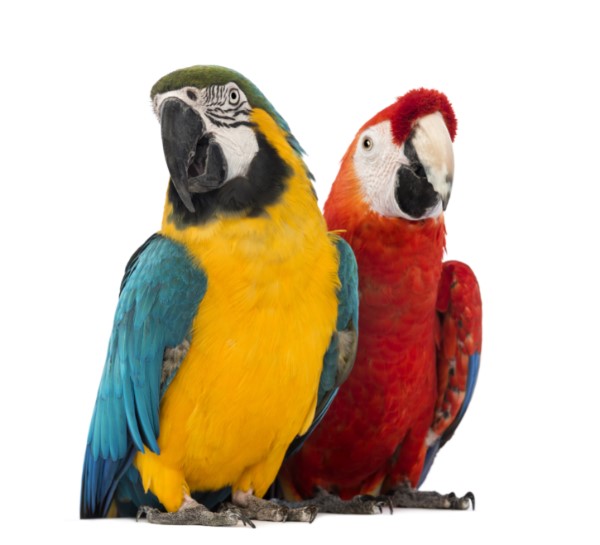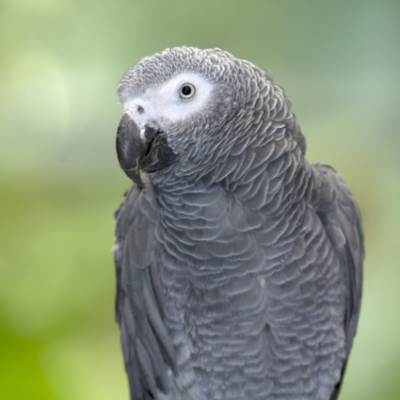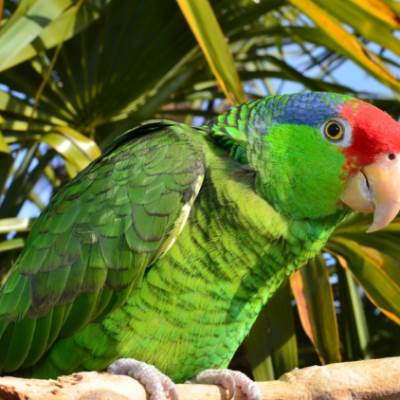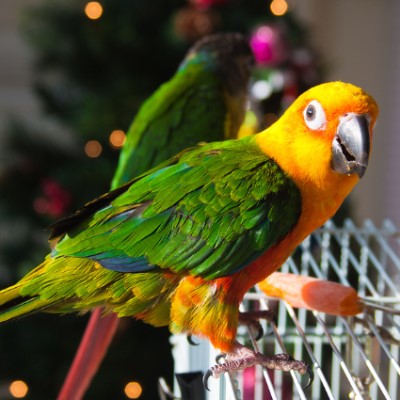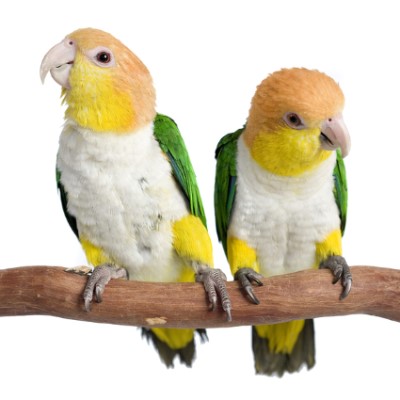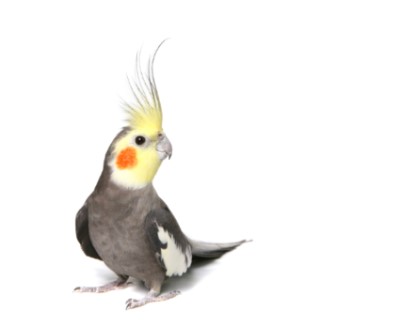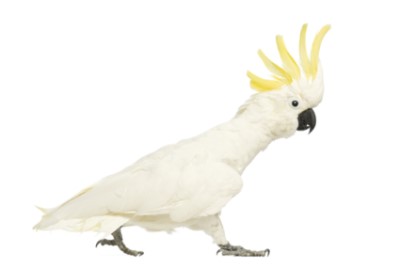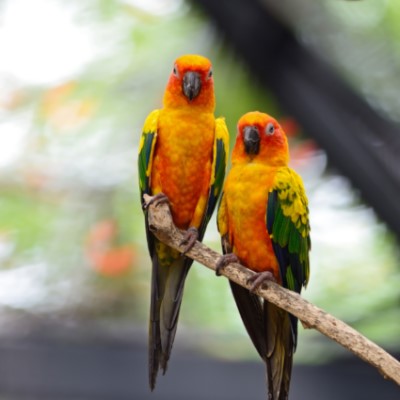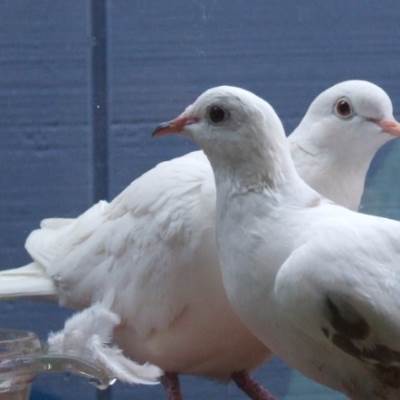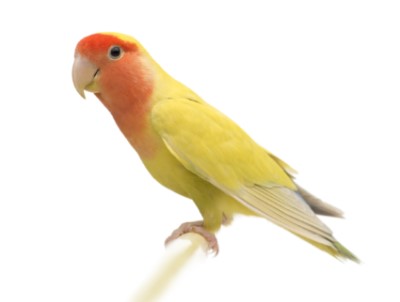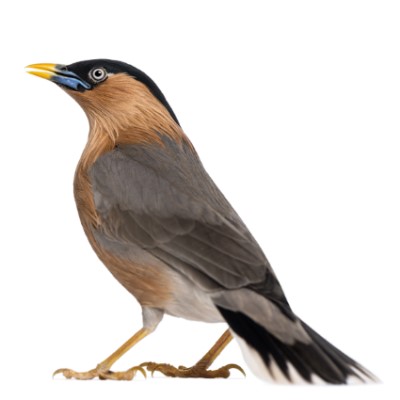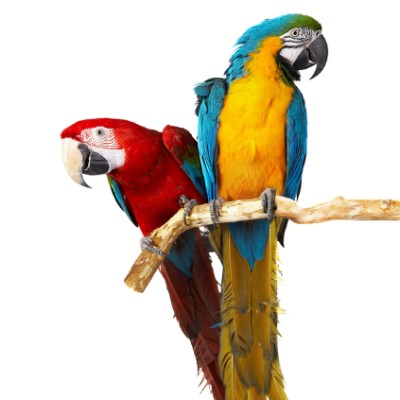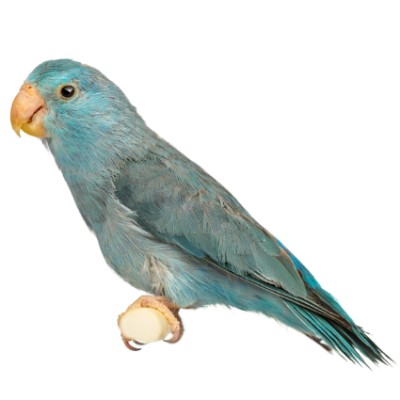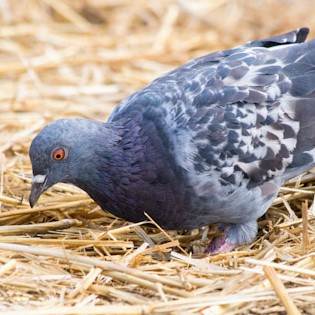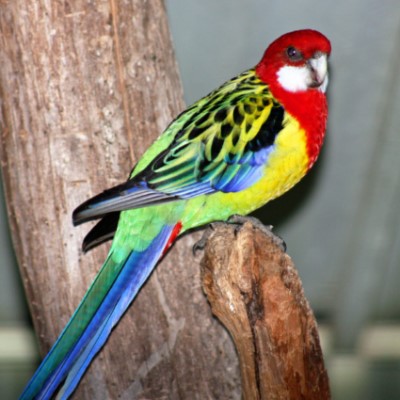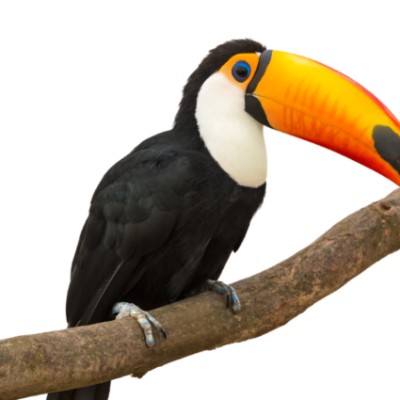Common Reasons for Surrender
People surrender macaws because they are not educated on their personalities or life spans. Macaws can behave like a two-year-old with a temper tantrum and can be mean spirited and bite fingers. Many times the macaw is returned because he outlives his owner.
Pros
Macaws are very intelligent birds. Some rescuers and breeders say they behave like a small child between the ages of three and 10. You have the ability to work with the macaw as long as you provide human companionship and socialization with people and other animals. One of the most unique qualities of the macaw is that many of them actually blush. Some people find it very entertaining to watch their white cheek patches turn red when they’re excited.
Cons
Rescuers say the macaw bites fingers and have bitten faces, hands, arteries, and even through bones. The macaw needs an experienced hand because a big beak means a big bite. They can have temper tantrums bird style if they don’t get the attention they’re seeking. Some macaws can scream more than 105 decibels, which can irritate the bird’s family or the neighbors next door.
Diet
Almonds are especially good for the macaw. She will also need a good quality seed and pellet diet. Vegetables and fruits may be given, but the macaw will gravitate to Brazil nuts, walnuts, filberts, pecans, and macadamias.
Exercise
Macaws will splash in a shallow plastic kiddie pool or entertain you and herself on a play gym that you set up inside or outside of her cage.
Possible Health Issues
A poor diet can give the macaw liver problems. The macaw tends to mutilate himself almost as much as cockatoos.
Housing
The larger macaws need a larger cage, at least 60 x 60 x 48 inches. Manzanita perches (from Manzanita trees) are essential and it’s smart to use varying diameters. A therapeutic perch should be two to four inches in diameter. It’s essential that the perches and bars of your cage are strong enough to stand up to the beak and bite of the macaw.
Grooming
The macaw needs her owner to talk, play, brush her feathers and fingernails, and to stroke her feathers from head to tail. Macaws are water birds, but this is one bird that will not be able to take a swim or a bath in a small shallow dish. Rescuers usually have outdoor aviaries with built-in ponds. Another option is to provide your macaw with a small plastic kiddie pool and fill it with shallow water and toys.
Training
The macaw has a domineering personality and will gladly chew and destroy anything he can find. You can give your macaw chunks of 2 x 4 boards to chew up.
Entertainment
Someone needs to tell the macaw he needs his water bottle. They love puzzles and can become experts at dismantling water bottles and other items you post on his cage. Macaws need very strong toys that can stand up to the strength of their beaks and the peak of their agitation. If you don’t supply them with enough toys, they may entertain themselves by chewing on your furniture.
We want to thank Feathered Friends Forever, Harlem, Georgia, and Avian Rescue Corporation (ARC), Concord, California, and for help with this profile.
